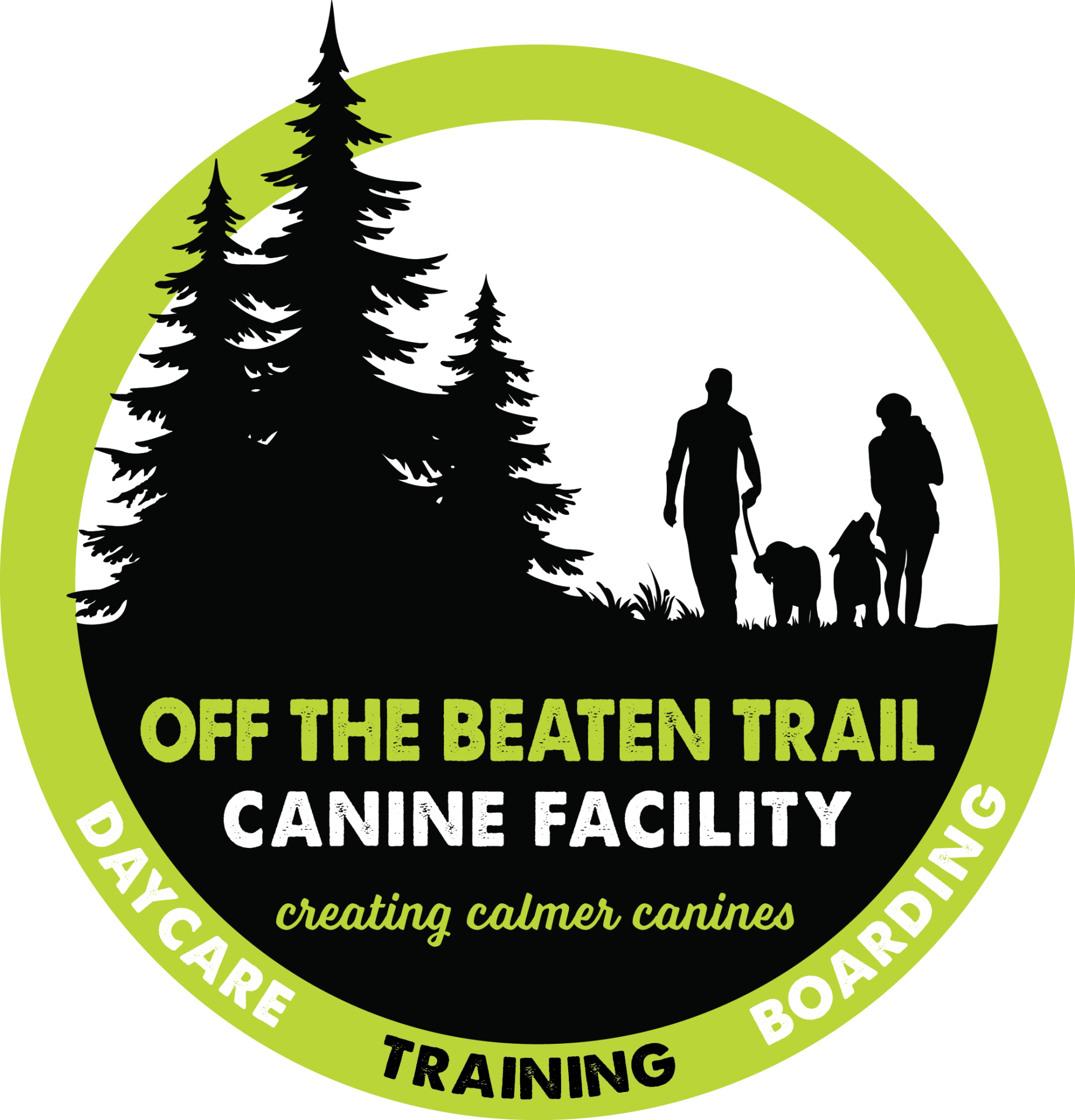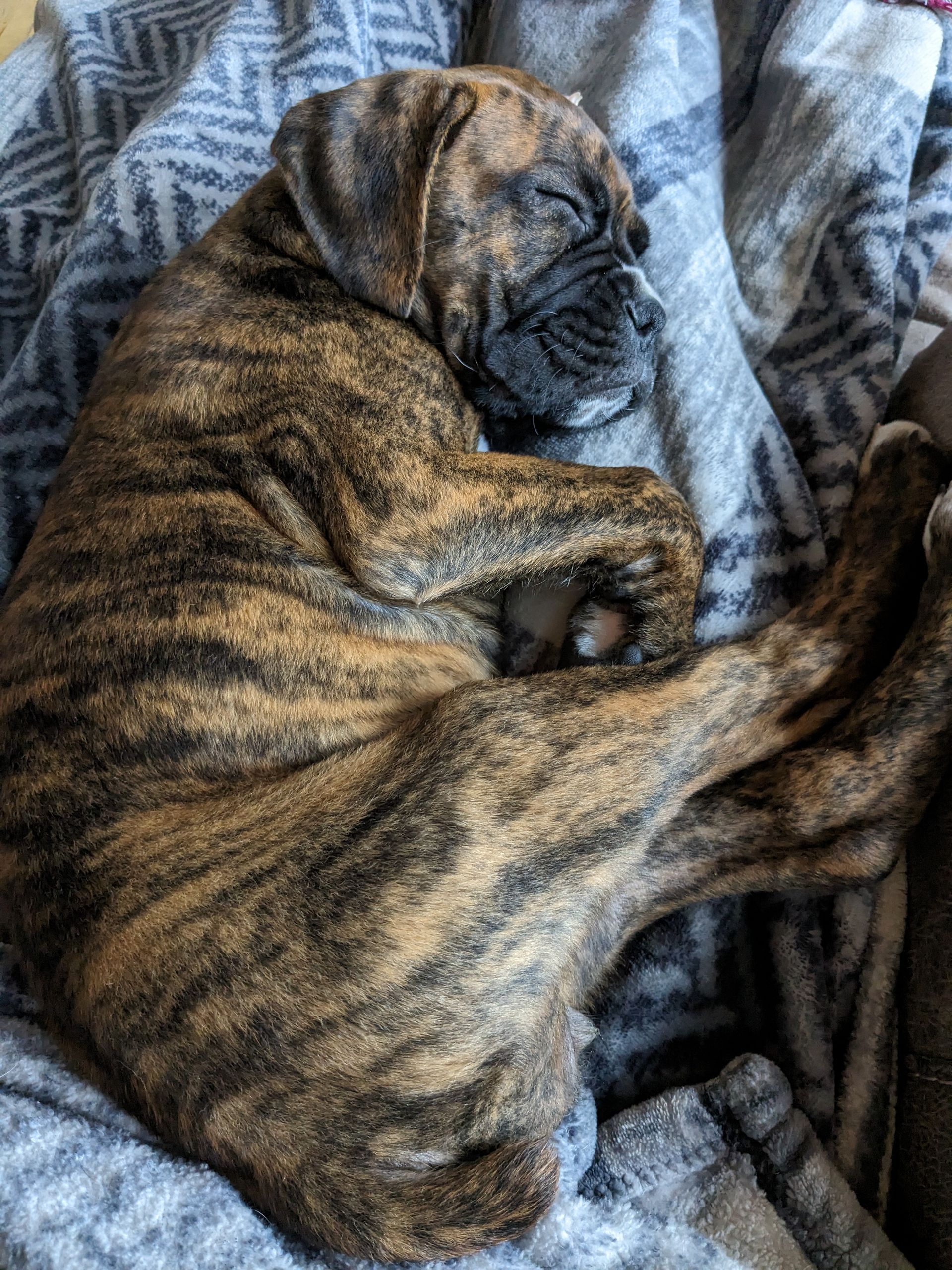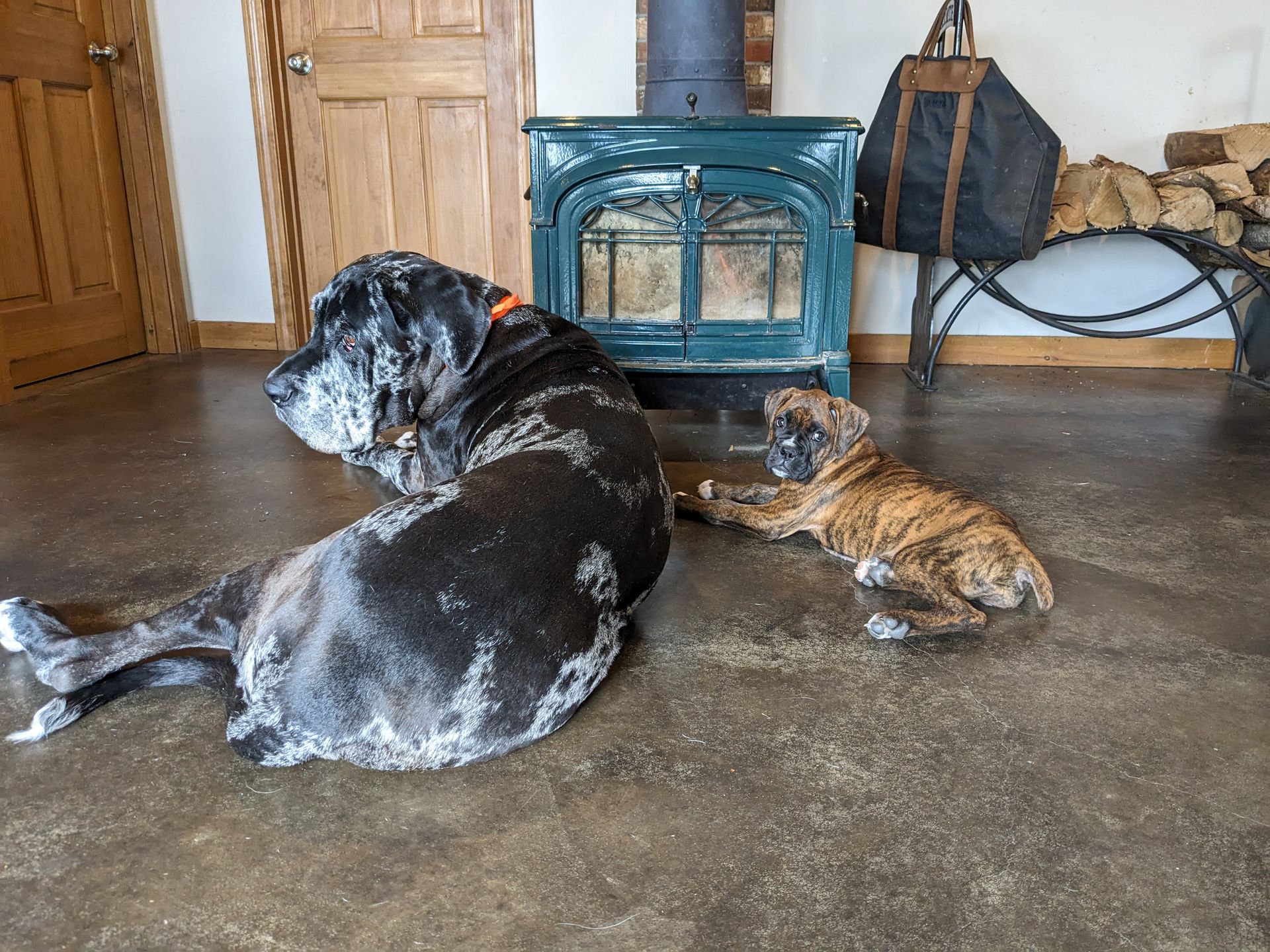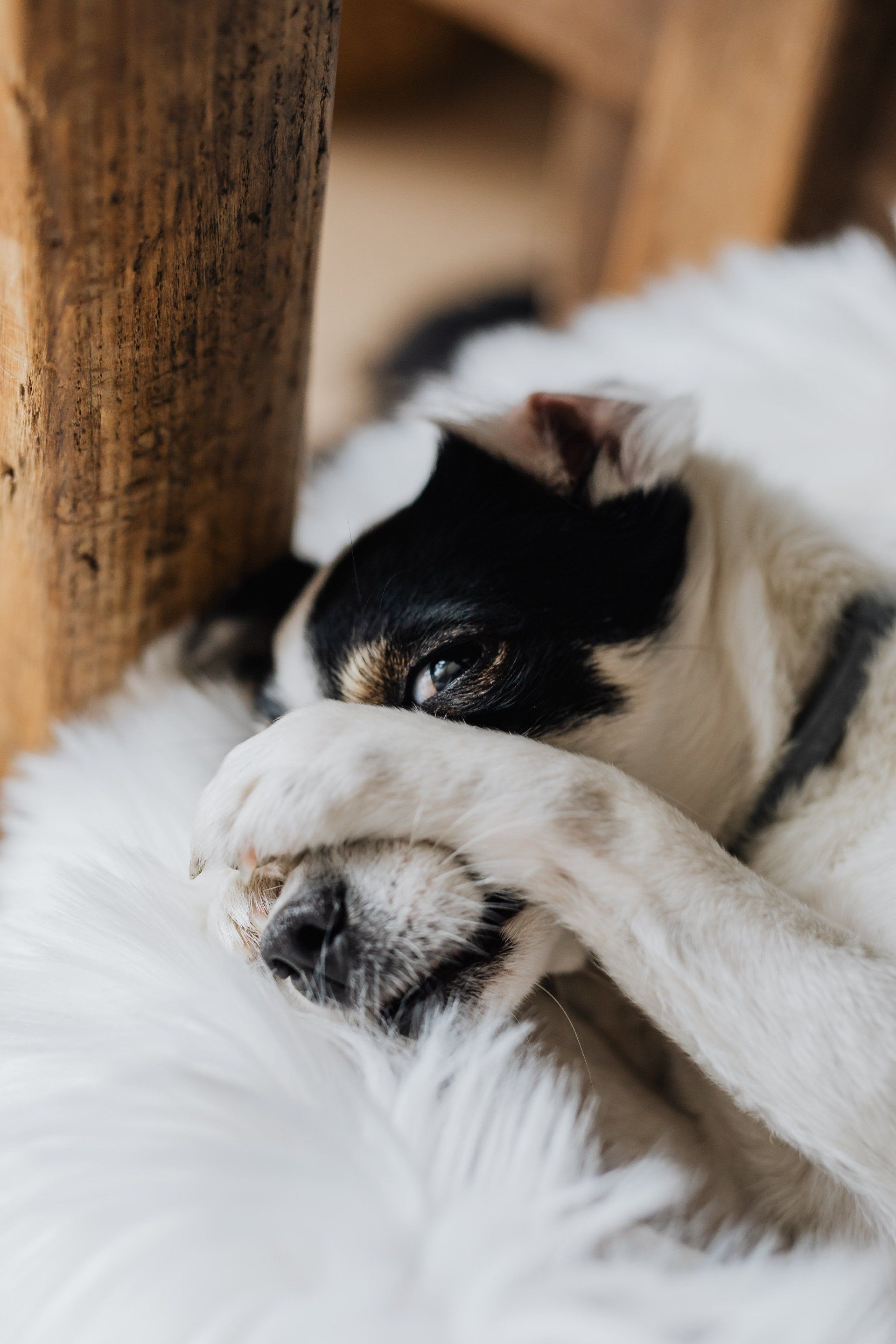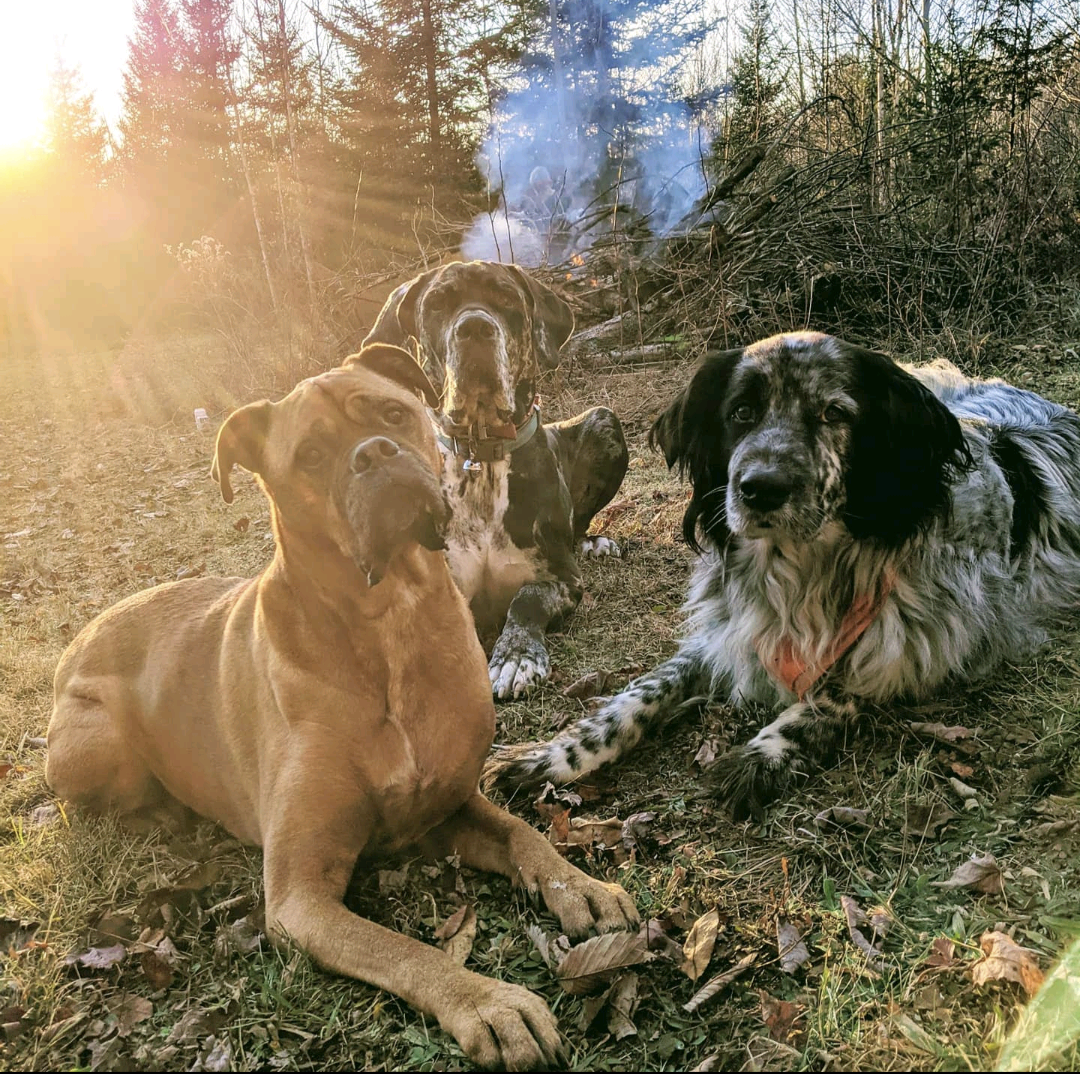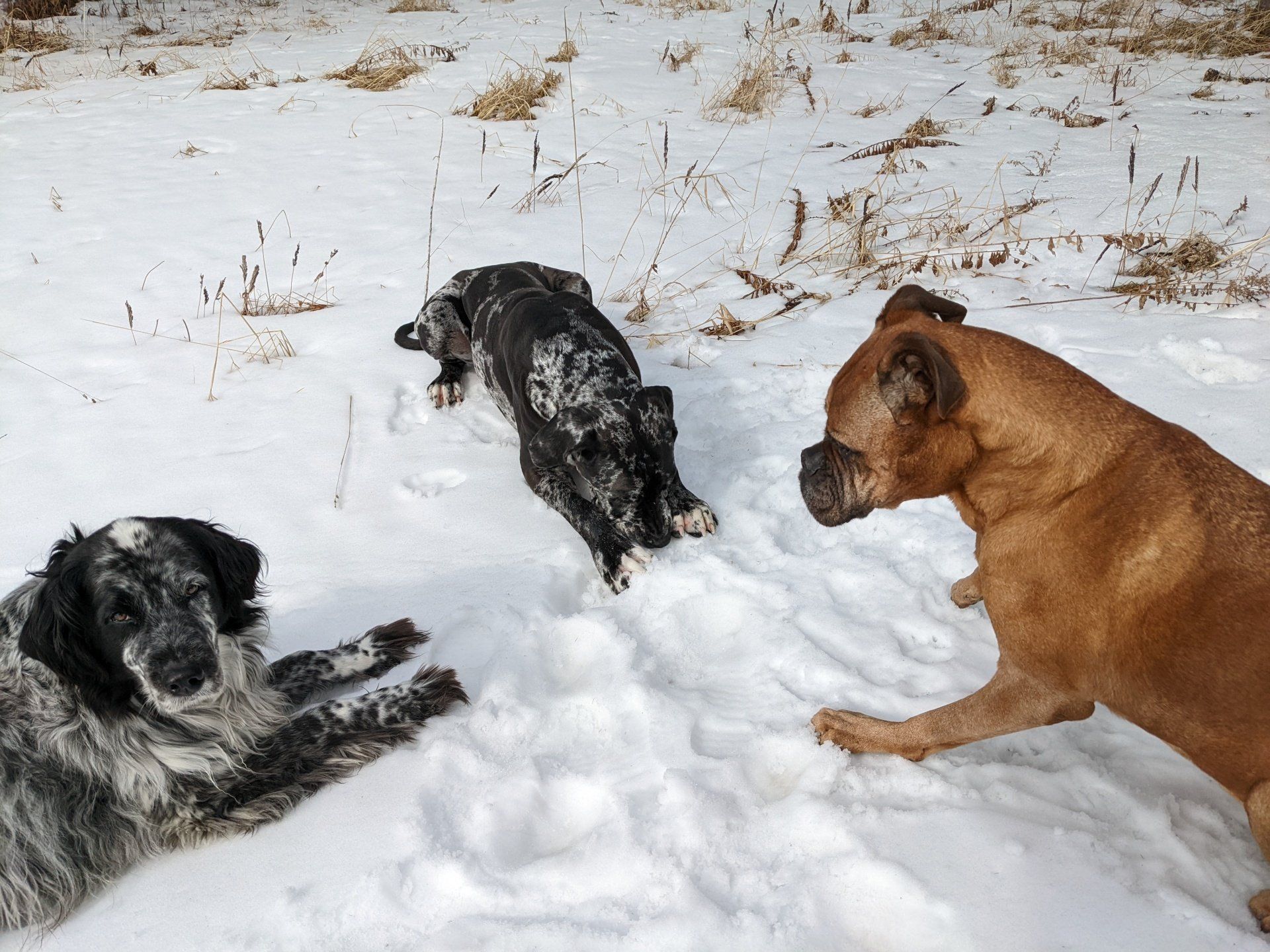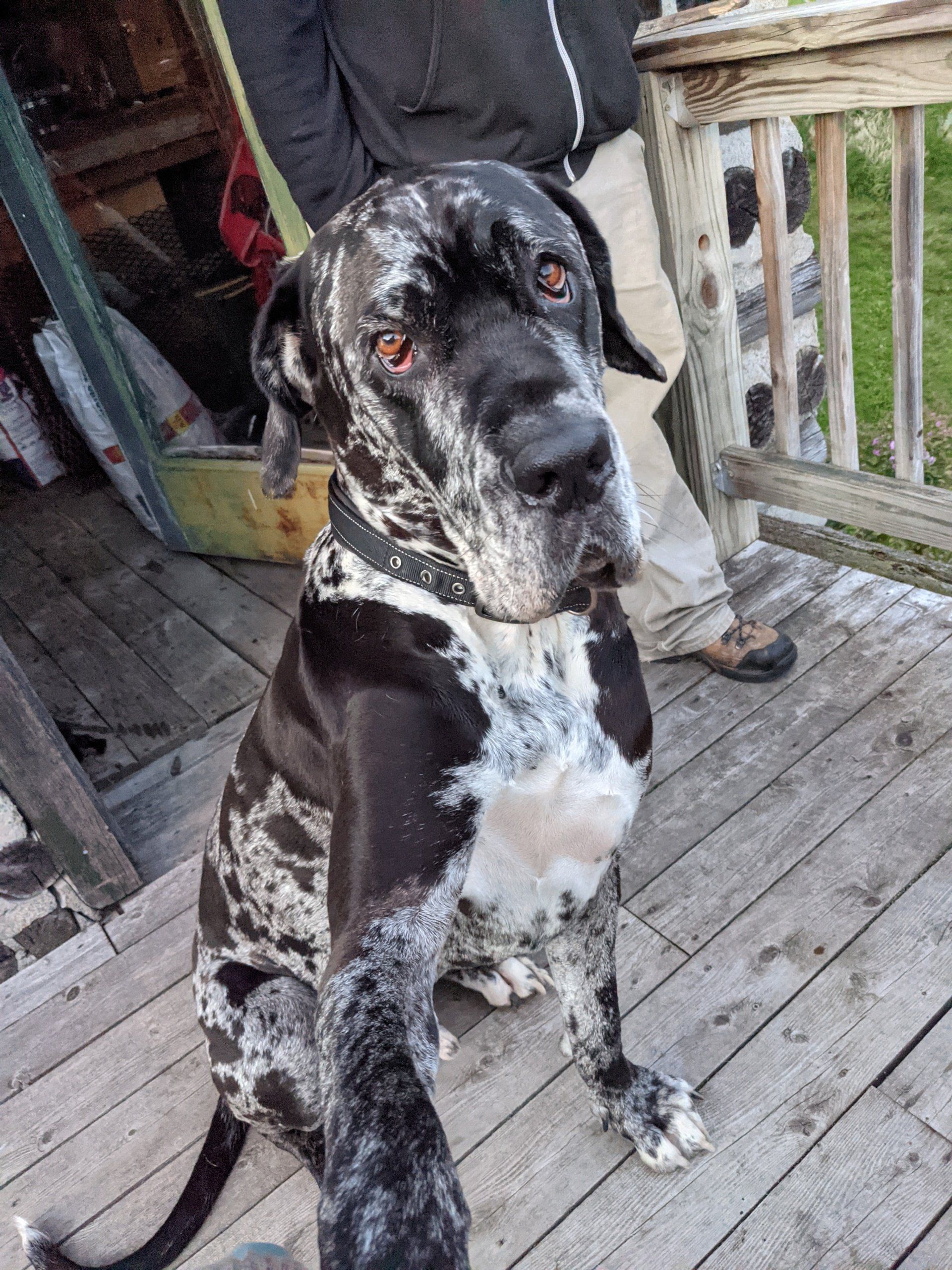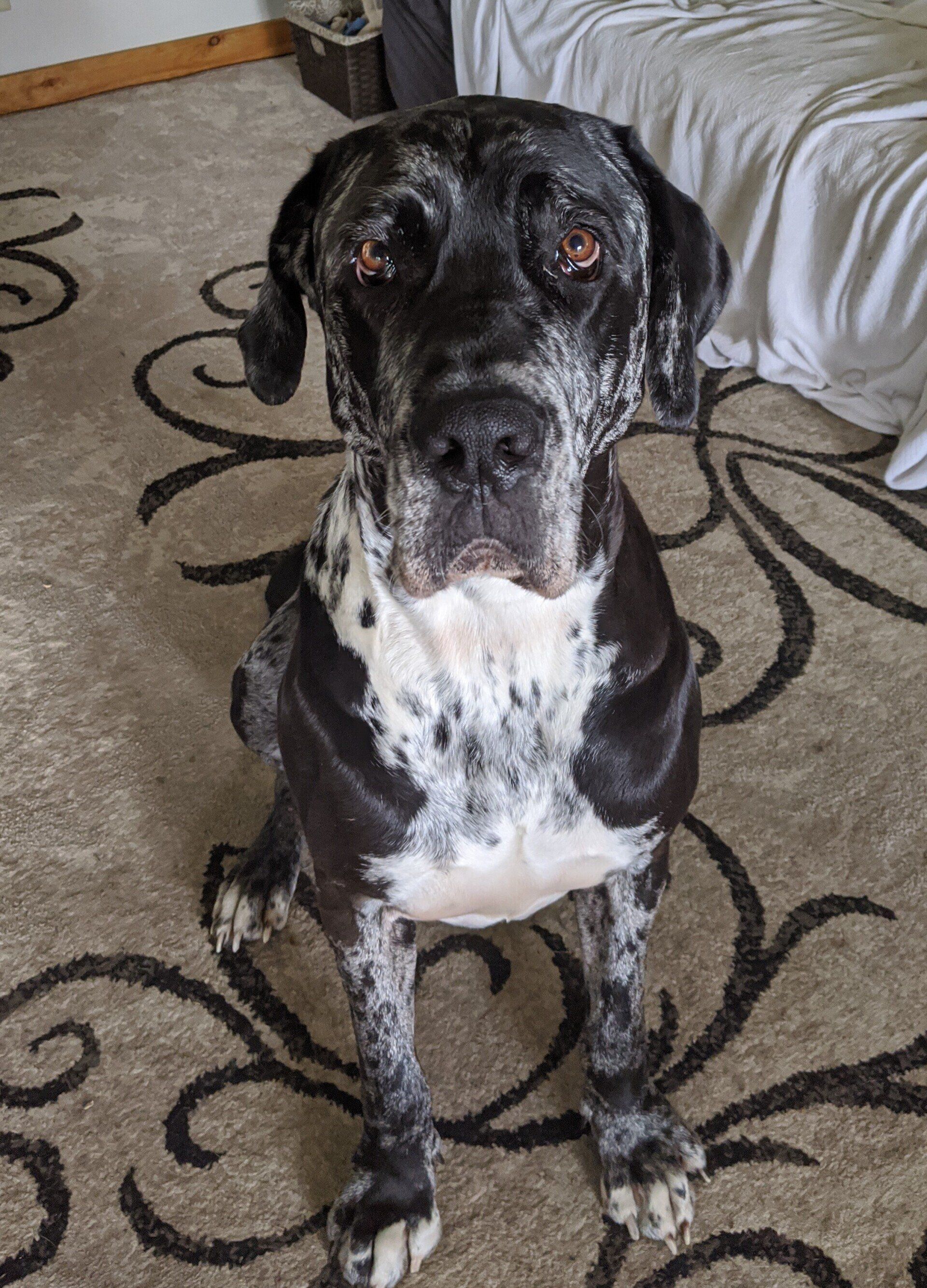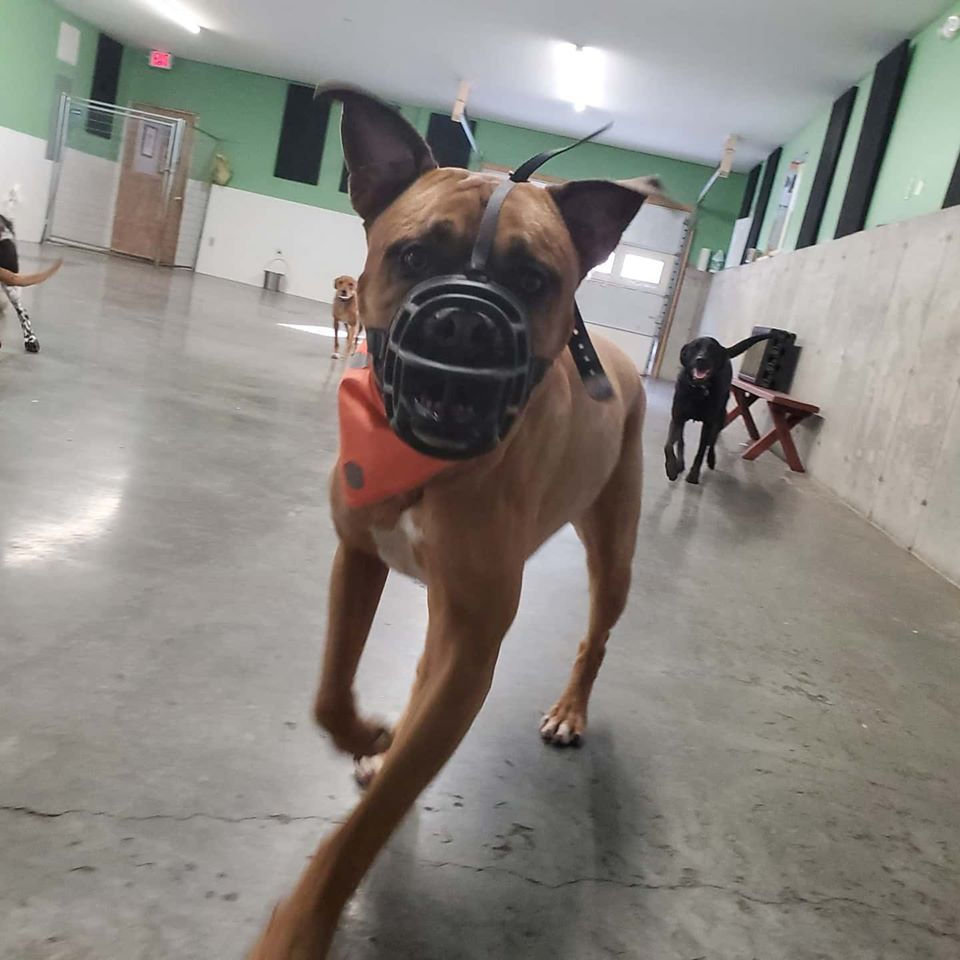You're Saying My Dog Needs MORE Sleep?!
Gillian Scarpino
But he's so hyper!
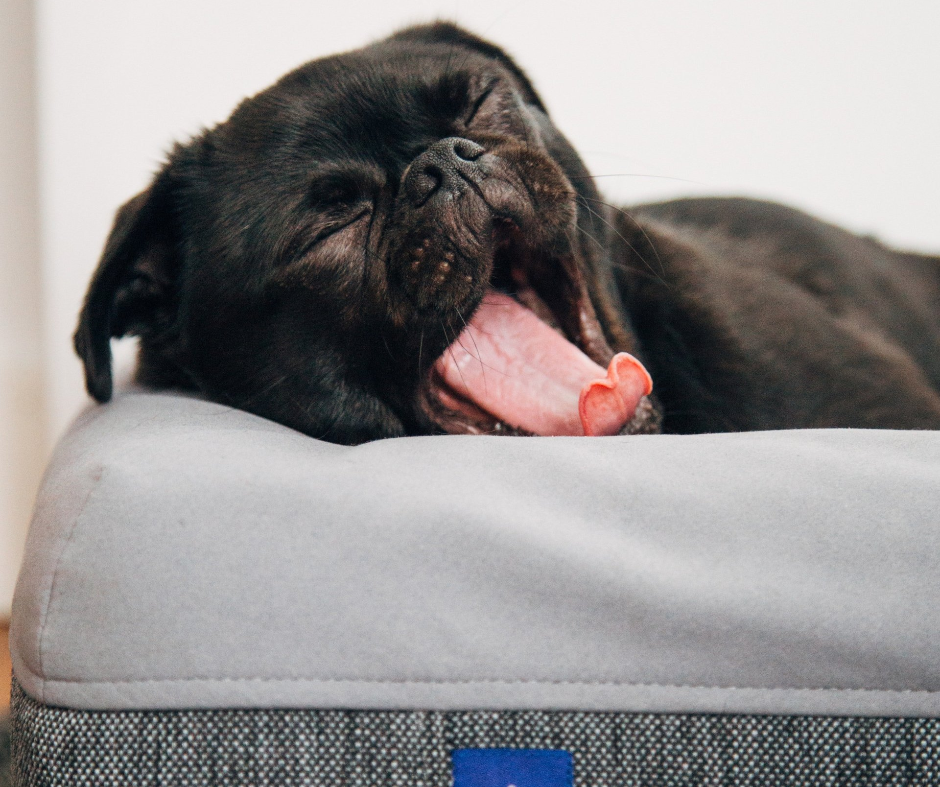
I think it’s fair to say that most dog owners feel the need to let their dogs run and run and run, play and play and play, to “get all their energy out” before either going to work or going to sleep for the night, right? I can honestly say that was my exact thought when it came to my youngest son! He kept waking up in the night (anywhere between 5-20 times per night), plus it would take him well over an hour to fall asleep at bedtime and he would always wake up in the 5 o’clock hour. Day in and day out, even at almost three years old. To say we were exhausted and at the end of our ropes is the understatement of the century!
My thought process was, if he’s not sleeping, it means he’s not getting his energy out during the day. So I voted for having him skip his nap, bring him to a playground or the bike trail daily, and run the energy out of him. It HAD to work, right?
WRONG!
It made it all worse. Convinced I had the only child who had ever been this terrible of a sleeper, I decided we needed to enlist the help of an expert. White noise, changing bedtime routines, keeping him up later so he would sleep longer in the morning, bringing him into bed with me…literally nothing worked. I had no idea what a sleep specialist would tell me, but I was ready to hear it and ready for a miracle.
The first phone call with her gave me so much hope. It also made me think I should never tell her what we do for a living. She asked us if we had ever heard of the fight or flight response? Attention seeking behaviors? Positive reinforcement? Creating structure and boundaries? Desensitization? Positive associations?
Let’s just say we felt kind of silly.
Our conversation with the sleep specialist paralleled countless other conversations we have held with our clients over the years in so many ways! It made me realize that while the broader ideas were pretty easy to comprehend, putting them into practice was where the guidance was needed.
She explained that a lack of sleep will make the body produce stress hormones (adrenaline, etc) that keep you in fight or flight mode. She asked if we had ever gone to a concert or something like that and then had trouble falling asleep when we got home. It was the same thing for our son, except that was his reality every single night. He was sleep deprived and therefore running on stress hormones which made it appear
that he was full of energy, and those same hormones made it impossible for him to fall asleep at night, stay asleep at night, and sleep in in the morning. It was a vicious, downward spiral. The more tired he was, the more adrenaline he would run on, the less he would be able to sleep. No wonder my plan of running the energy out of him didn’t work.
The goal was to build his “sleep bank” over time, change the association of the bedtime routine from negative to positive, give him a visual barrier (a baby gate so he couldn’t leave his room once it was bedtime), slowly desensitize him to being by himself to fall asleep, helping him develop self-soothing mechanisms which helped him go back to sleep on his own, not giving into his attention seeking behaviors which only prolonged the negative sleep routine, and rewarding him for following the sleep plan and eventually sleeping through the night!
In eleven days of working with the sleep specialist, our son (and the rest of the family) slept through the night for the first time in years.
Not only that, but we actually got to see who our son was for the first time. He became this sweet, joyful, excited and confident little man who could focus on tasks, follow directions, and, most importantly, rest when it was time to rest. Think about that – I didn’t really know my son until he was well rested. Sleep is amazing.
That was a long winded way of saying that if your dog is hyperactive, unfocused, constantly seeking attention, and you feel like you can never run enough energy out of him (or all of the above), 9 times out of 10 your dog is sleep deprived and running on stress hormones. Seems counter-intuitive, right? I know, but as the sleep specialist reminded me dozens of times, sleep is not logical, it’s biological.
Dogs need an average of 12-14 hours of sleep per day, and puppies need as much as 18-20 hours! Older dogs tend to need more than the average as well. And I’m not talking about sleep that the dog is easily awakened from, I’m talking deep, restful sleep!
A few signs to look out for:
Hyperactivity
Inability to focus
Anxiety
Sleeping with “one ear perked and one eye open”
Inability to leave the room without your dog waking up to follow you
Difficulty controlling impulses
Pacing
Weak Immune system
Sleep also helps dogs process and store information into their long-term memory. We recommend letting your dog sleep after training sessions for this very reason! The crate is a great tool for this.
I cannot stress enough the importance of the right amount of good, quality sleep for your dog (and for you!) It takes a few weeks to change this pattern, but I promise you, you will see a whole new side to your dog that you never knew existed.
